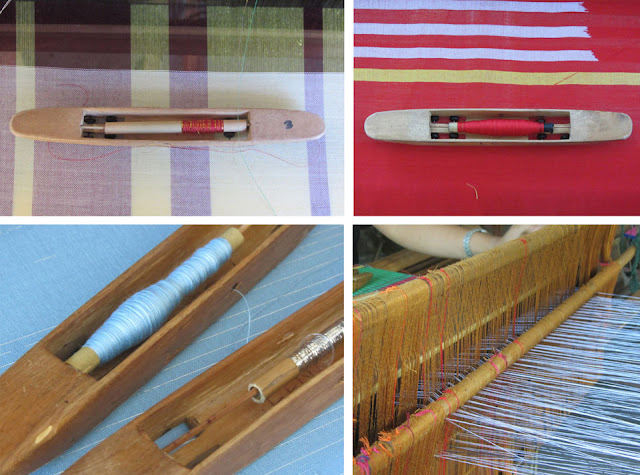Larga Sustainable Zarraga
The local
government of Zarraga, civil society and piggery and poultry operators have
committed to rid their town of flies and also make it a showcase of best
practices in compost-making and organic farming.
This developed
after residents complained of flies’ infestation and bad odor caused by the
piggery and poultry businesses in the area.
To solve this,
Mayor John Tarrosa of Zarraga called for a multi-sectoral workshop participated
by village heads, businessmen, educators, environmentalists and government
agencies last August 2-3 at the town’s gym.
The workshop was
funded by the municipal provincial office and organized by MISSION (Movement of
Imaginals for Sustainable Societies through Initiatives, Organizing and
Networking).
MISSION pursues a
tri-folding approach, where the political, cultural and economic sectors work
together in achieving sustainability in a community. (Visit http://www.imaginalmission.net/web2.0/)
During the workshop, Atty.
Jonathan Sayno, head of the Environmental Management Bureau of the Department
of Environment and Natural Resources (DENR) and Virgilio Fambromero, reminded
the LGU and the operators that there are environmental laws that need to be
implemented and followed in order to avoid sanctions which include business
closure.
Fambromero said
that before a business that has environmental impacts can operate, it has to
secure an environmental clearance certificate, a mayor’s permit, sanitary
permit and zoning clearance.
An ECC is issued
by the DENR and the rest are issued by the LGU.
“Let’s not be
stubborn as poultry and piggery operators and cause problems to the community.
Let us not just think of profits at the expense of our environment. Let us
remember our special contract (ECC),” Sayno warned.
Meanwhile, Dr. Clemencia Bondoc, municipal health
officer explained that a fly carries millions of bacteria in its wings. She
added that it has a habit of vomiting and defecating on food, leaving behind
the toxins it got from dirty elements like animal waste, human feces, sputum,
garbage, decaying fruits and vegetables,
among others.
Fambromero also
said that a fly can lay hundreds of eggs and these are hatched seven days
later.
“That is why you
have to clean your pig pens and poultry at least twice a week,” he said.
BEST PRACTICES
Msgr. Meliton
Oso, head of the Jaro Social Action Center’s farm in Talibong, Zarraga said
they spray a concoction on pig manure so that it will not emit a bad smell,
apart from regular cleaning of the pig pens.
“Tatay Rudy”,
caretaker of the said farm said they gather the pig’s manure and feed this to
their worms, a process in making compost or “abono”.
“What’s most
important here is management with a system. We need to be determined in
managing the wastes of our animals,” he said.
Meanwhile, Gerry
Garingalao of Nueva Valencia, Guimaras shared recipes in making the concoctions
and compost out of animal wastes.
Some recipes
were: Indigenous Micro Organism, Fermented Fruit Juice, Lactic Acid Bacteria
Serum (LABS), and Oriental Herb Nutrient, among others.
POULTRY AND
PIGGERY
Meanwhile, the piggery and poultry operators shared that
flooding has aggravated their difficulty in controlling the bad smell emitted
by their businesses.
Wet animal wastes
emit bad odor, which attracts flies.
They also
admitted that apart from the animal wastes, flies are also attracted on the
feeds. Thus, they agreed to keep the feeds in a covered container as well as
clean their structures 3 to 4 times a week.
COMMITMENT
At the end of the
workshop the different sectors came up with their action plan.
The municipal
officials said they will review the existing ordinances and monitor their
implementation, create new ones, offer
awards and merits to piggery and poultry operators engaged in best practices,
and create Task Force Kalikasan, an advising body to give guidance and
direction on how to improve hog and poultry raising activities.
Meanwhile, punong
barangays proposed there should be mangrove, acacia and jackfruit tree
planting, dredging of creeks and rivers
to address flooding, massive information dissemination on proper waste
disposal, and training on concoction making and waste management.
They also pledged
to monitor piggery and poultry owners’ compliance of environmental laws.
The civil society
group, meanwhile, will embark on information dissemination and trainings on
health and sanitation.
The piggery and
poultry owners, as a start, have agreed to form the Zarraga Poultry and Swine
Operators Association and the election of officers will take place on August
10. After that, they will increase their technical knowledge on reducing flies
infestation and waste management.
At the end of the
workshop, the participants agreed on a battle cry for the town, which is “Larga
Sustainable Zarraga.”
“We can manage
our resources well and can have a very sound sold waste management system. We
will turn this liability (flies, etc) into an asset. Our town is a small municipality but I’m very proud to
say, give us time and Zarraga will be big, progressive, peaceful and
community-development oriented. Our drive is to make Zarraga a place where
everyone would like to live in,” Mayor Tarrosa said./Marie Katherine Villalon





